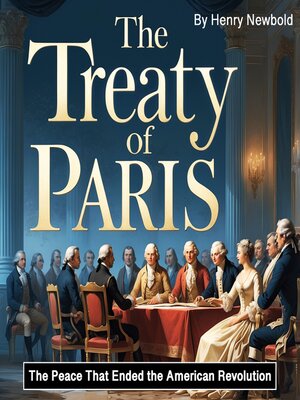The Treaty of Paris
audiobook (Unabridged) ∣ The Peace That Ended the American Revolution
By Henry Newbold

Sign up to save your library
With an OverDrive account, you can save your favorite libraries for at-a-glance information about availability. Find out more about OverDrive accounts.
Find this title in Libby, the library reading app by OverDrive.



Search for a digital library with this title
Title found at these libraries:
| Library Name | Distance |
|---|---|
| Loading... |
This audiobook is narrated by a digital voice.
The Treaty of Paris, signed in 1783, marked the official end of the American Revolution and the beginning of a new chapter in world history. Before the treaty could be negotiated, several critical events paved the way for its creation, each shaping the course of the war and the eventual peace agreement. The years of conflict between Britain and the American colonies had set the stage for a complex and delicate negotiation process.
The American Revolution, which began in 1775, was driven by colonists' desire for independence from British rule. Tensions had escalated due to unfair taxation, lack of representation in Parliament, and growing unrest over British military presence. These issues culminated in the outbreak of hostilities at Lexington and Concord. Over the years, battles like Saratoga, the Siege of Yorktown, and the decisive French support had turned the tide in favor of the Americans. However, despite key victories, the American cause still faced significant challenges, especially in gaining full international recognition and ending the war on favorable terms.
By 1781, the British had suffered considerable military setbacks. General Cornwallis's surrender at Yorktown was the turning point, leading to political changes in Britain and shifting the momentum toward peace talks. The British government, exhausted by years of costly war and facing growing domestic pressure, recognized that continuing the conflict was no longer viable. A change in leadership, with Lord North being replaced by the more peace-oriented William Pitt, facilitated the eventual shift toward negotiating a settlement.







